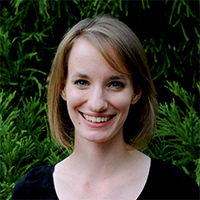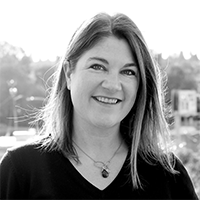Wergle Flomp Humor Poetry Contest 2017
Congratulations to the winners of our 2017 humor poetry contest!
Honorable Mention $100
- Daniel Ari, Maybe Blame the Party-Planning Industry
- Dawn Daniels, To My Love, the Man on Lincoln Avenue Who Yelled, “Hey Sexy. Nice Ass.”
- Tim Eberle, One Man’s Early Thirties: A Brief Lamentation
- Claudia Matos, What Is Love?: As Shown by Immigrant Parents
- Abby McCambridge, Jack
- Jane Mitchell, Select Me
- Taryn Parrish, The Dog Mom Bag
- Lee Patton, Toy Drive Moralist Seeks Mr. Potato Head
- Karen Schubert, I Miss You, Chicken in Every Pot
- Beth Spencer, Wharton Hears a…Who?
Thanks to everyone who entered our 16th annual Wergle Flomp Humor Poetry Contest. 4,277 contestants gave us poems on themes both timeless and topical, poking fun at consumer culture, social media, the great and not-so-great religions of humankind, and the current leader of the (at least temporarily) free world, He Who Must Not Be Named.
We suspect that first-round screener Lauren Singer has one of those Time-Turner magic pocketwatches that Hermione used to double-schedule classes at Hogwarts. Between her full-time social work job and fundraising for the Prison Birth Project, Lauren winnowed our entries to about 180 for final judge Jendi Reiter.
We promised to choose a top winner, runner-up, and 10 honorable mentions. In addition, this year we added a special third prize.
The 2017 picks are astonishingly low on blasphemy and vulgar anatomical references, compared to previous shortlists. What does it mean? Is our audience maturing, or are we? We certainly hope not.
Lauren shares some impressions of the latest entries:
"As always, being a judge for Wergle Flomp is a really wonderful way for me to see a little bit into the cultural psyche of the time. As one might expect, this year offered no shortage of political parody, social media tongue-lashing, or timely and topical commentary on America's top Twitter user—or his hair. The poems that really wowed me often alluded to these trends, but did so subtly or with unique style and wit.
"When writing into themes of pop-culture and current events, it's very difficult not being formulaic or merely remarking on platitudes. Let me just say, that if you are one of the many contributors, who each year just submits a broad retelling of a popular headline in the style of Clement Clark Moore's 'A Visit from St. Nicholas', you likely didn’t make me laugh. At this stage of the game, it's hard for me to not glaze over as soon as I read the phrase, ''Twas the night before...' something. This year, that something was inevitably the election. Basically, if you're submitting anything 'in the style of' someone else, the task is on you to set it apart from its original—otherwise we're just looking at old hat. And I usually fancy the new hats, if I'm being completely honest.
"This year, the pieces that blew me away featured original themes, complex conundrums woven into poetry that made me 'LOL', narratives that spoke to the inner experience of being a complicated (read: neurotic) human—something I relate to deeply—and, as always, poems that made me laugh, but also made me feel something. It's the poems that work as connective tissue to real experience and nuance that get me every time.
"Poems that continue to make my eyes roll out of my head are always the ones poking fun at fatness, aging bodies, entire poems about farts, or generic 'I hate my spouse' pieces. This isn't to say that these baubles can't ever be made into funny features, but more often than not, I breeze past the 'Beans give me gas' poems in search for something a little more fine-tuned and observational. Themes that are never funny, but always show up: blatantly misogynistic humor, poems that rely heavily on heteronormativity or homo/transphobia, or any pieces that are generally culturally or racially insensitive. I know someone is reading this and thinking, 'But it's humor! It’s subjective! We don’t need to be politically correct!' and honestly? Your argument is tired. Take it from this funny lady, we can pull out all the stops and still do it humanely and respectfully, while packing in the belly laughs.
"Wergle 2017, you made me laugh, occasionally you made me cry while laughing, and always you made me feel lucky for continuing to do this work. Can’t wait to see what shows up in the pile next year!"
Our Winners
In this year's list, there's more witty light verse than screaming hilarity. We welcomed subtle, clever treatments of themes we hadn't seen before. In this intense political moment—half the time we're worried that the news is fake, the other half we wish it was—poems succeeded best when flavored with, but not overpowered by, newsworthy concerns like sexual harassment, propaganda, and ostentatious greed.
First-prize winner Penny-Anne Beaudoin's "The Magician's Assistant" employs snappy internal rhymes and double-entendres to voice the complaints of a helpmeet whose patience is vanishing faster than an ace up a sleeve. She rebels on behalf of the women in a myriad of professions who've been expected to make an incompetent man look good: "Smiling has become such a brutal discipline."
"It's so cozy!" is not a comment we typically make about Wergle poems, but it's the reason second-prize winner Mary Somerville's "A Friend to All Is a Friend to None" charmed us so much. In this gentle narrative, Plato and Aristotle pare down their shallow social media networks to appreciate the virtues of two old buddies enjoying Netflix and chill. It's like "Frog and Toad Are Friends" but with philosophers.
Third-prize winner Jennifer Teunon's "Mind Over Mindfulness" eavesdrops on the stream-of-consciousness ruminations of a bored mom at a middle school band concert. Her well-meaning struggle to treasure the moment rings very true, unlike some of the performers' notes.
Our honorable mentions brought style and insight to the peculiarities of modern life, including tacky Hollywood bar mitzvahs, street harassment, pretentious dog accessories, and a certain political leader who doesn't always tell the truth about his resumé.
Read the press release for our 2017 winners.
The 2018 contest is now open for entries through April Fool's Day. We need a good laugh before the End Times. Surprise us!
Contest Judges

Lauren Singer
Lauren Singer is an assistant judge of our Wergle Flomp Humor Poetry Contest and North Street Book Prize, and a past judge of our Tom Howard/John H. Reid Fiction & Essay Contest. She is a native New Yorker living in Western Massachusetts. Her poetry has been published in Nerve House, Bareback, Feel the Word, Read This, Kosmosis, One Night Stanzas, and other literary magazines across the country. An attendee of the New York State Summer Writer's Institute, she is a graduate of Bard College at Simon's Rock and received her MSW at the University of Chicago in 2015. She has self-published three chapbooks and received an honorable mention in the 2011 Wergle Flomp contest. In addition to her creative interests, Lauren works as a sex and relationship therapist and runs a private practice out of Northampton, MA. Her book-length poetry manuscript, Raised Ranch, will be published by Game Over Books in April of 2025. She prides herself on her wealth of useless pop culture knowledge, namely of nineties R&B lyrics, and she can pretty much quote "The X-Files".
Contest Judges

Jendi Reiter
Jendi Reiter is vice president of Winning Writers, editor of The Best Free Literary Contests, and oversees the Winning Writers literary contests. Jendi is the author of the novel Origin Story (Saddle Road Press, 2024), the short story collection An Incomplete List of My Wishes (Sunshot Press, 2018), the novel Two Natures (Saddle Road Press, 2016), the poetry collections Made Man (Little Red Tree Publishing, 2022), Bullies in Love (Little Red Tree Publishing, 2015), and A Talent for Sadness (Turning Point Books, 2003), and the award-winning poetry chapbooks Swallow (Amsterdam Press, 2009) and Barbie at 50 (Cervena Barva Press, 2010). Awards include a Massachusetts Cultural Council Artists' Grant for Poetry, the 2016 New Letters Prize for Fiction, the 2016 Rainbow Award for Best Gay Contemporary Fiction, the 2015 Wag's Revue Poetry Prize, the 2013 Little Red Tree International Poetry Prize, the 2012 Betsy Colquitt Award for Poetry from Descant magazine, the 2011 James Knudsen Editor's Prize in Fiction from Bayou Magazine, the 2011 OSA Enizagam Award for Fiction, the 2010 Anderbo Poetry Prize, and second prize in the 2010 Iowa Review Awards for Fiction. Jendi's work has appeared in Poetry, The New Criterion, Mudfish, Passages North, Cutthroat, Best American Poetry 1990, and many other publications. See their interviews in RoundPier and Lammergeier.
Photo by Ezra Autumn Wilde










